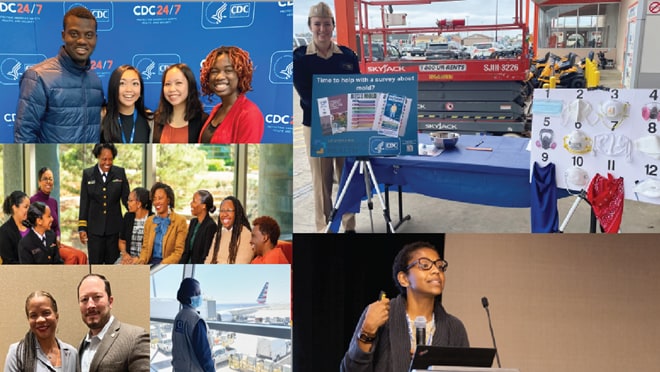At a glance
Public Health Infrastructure is made up of the people, services, and systems needed to promote and protect health in every U.S. community.

Our mission
To improve public health outcomes by strengthening the public health infrastructure and workforce of the United States.
Focus
The Public Health Infrastructure Center is committed to ensuring that everyone enjoys the benefits and protections of effective public health services.
Strategic Plan
Our work
Jurisdictional & Tribal Support
The Division of Jurisdictional Support coordinates CDC funding, strategy, and technical assistance to jurisdictions and Tribes through an approach grounded in customer service, trust, equity, and continual improvement. Key activities include:
- Public Health Infrastructure Grant
- Preventive Health and Health Services Block Grant Program
- Strengthening Public Health Systems and Services in Indian Country
- COVID Health Equity and Tribal COVID Grants
Partnerships & Technical Assistance
The Division of Partnership Support leverages partnerships to sustain and strengthen public health system capacity through technical assistance and support. Key activities and offices include:
- National Partner Cooperative Agreement
- Partner Capacity Building through Grants & Cooperative Agreements
- Office of Public Health Law Services
- Office of Island Affairs
Workforce Development
The Division of Workforce Development provides national leadership for recruiting, training, developing, retaining, and diversifying the public health workforce. Key activities include:
- Fellowships, including the Epidemic Intelligence Service and Public Health Associate Program
- Public Health Workforce Research
- Public Health Americorps
- Education and Training for Public Health Practictioners
Reaching Every Community
Tribes and Tribal Communities
The Office of Tribal Affairs and Strategic Alliances serves as CDC’s lead liaison for American Indian and Alaska Native public health issues. The office coordinates CDC’s government-to-government relationships with tribes and provides expertise to CDC programs working in Indian Country.
Rural Communities
The Office of Rural Health leads CDC's rural health strategy and coordinates across agency to improve the health and well-being of rural communities throughout the United States.
Territories and Freely Associated States
The Office of Island Affairs collaborates with federal and non-federal partners, CDC programs, and health officials to strengthen public health systems for U.S. territories and freely associated states.
3,000+ Health Departments
The Office of Recipient Support and Coordination assists thousands of state, local, territorial, and freely associated state health departments. The office leads coordination and executive-level engagement, providing a vital link between CDC and leadership on the frontlines of public health.
An Enterprise Approach, Centered In Service
Our Approach
Customer Service. The center strives to provide high-quality services that are focused on the needs of our customers—state and local health departments, tribes, U.S. communities, and public health colleagues and organizations.
Accountability, Evaluation and Impact Metrics. The center works to be good stewards of our resources. We evaluate and measure the success of our programs, and we use these results to hold ourselves accountable and improve our programming.
Policy, Partnerships and Communications. The center strives to collaborate, be transparent, and communicate clearly with the public and critical public health audiences. We build strong partnerships across sectors to support high-impact policy initiatives.
Program Development and Implementation. The center designs, delivers, and informs programs and provides technical assistance to support public health infrastructure and workforce.
Science, Technology, and Innovation. The center uses the latest scientific evidence, technology, and innovation to advance, measure, and promote our delivery of programs and services, including addressing systemic health disparities within communities.
